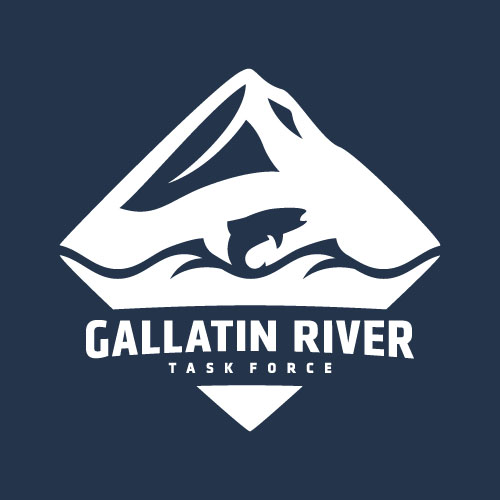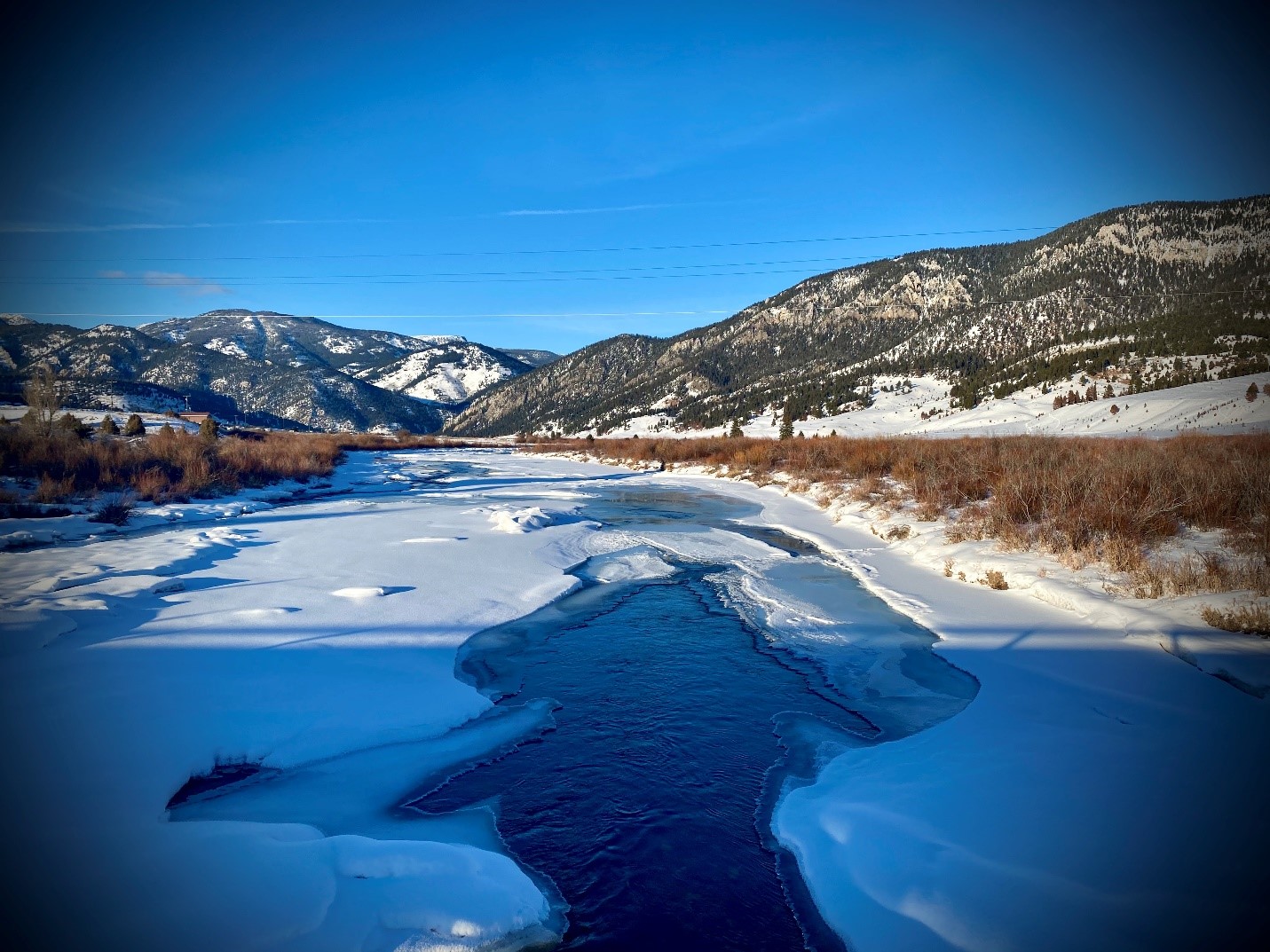We care about snow for a lot of reasons. We need it to enjoy all of our winter sports; skiing, snowboarding, Nordic adventures, and even a good snowshoe. Nothing says cozy like curling up next to a fireplace on a cold, snowy evening, and Lone Mountain is arguably the prettiest when covered in it. But aside from all the great things Big Sky has to offer come the winter season, we also care about snow because it tells us about drought and water supply.
You’ve probably heard the term ‘snowpack’ before; it is the amount of snow that accumulates during the winter and sticks around until melting off in the spring. Snowpack is indicated by a percentage, with 100% being the average, or what we want – and hope – to see. Right now (as of February 14, 2022), our snowpack is at 83%. This lack of snowpack can be attributed to a few things. One, we have seen overall fewer snowy days than are typical this time of year. Second, we have seen a lot of uncharacteristically warm days recently, contributing to an unseasonable melting of our accumulated snow.
So, why does this matter? The runoff that occurs from snowmelt in the spring is what fuels the Gallatin River during the dry summer months. Ideally, all the snow that accumulates during the winter melts off slowly through the spring to keep it flowing high and cold, and keeping our wetlands and water storage plentiful. Even when we are faced with drought, the slow melt of snow is what allows us to combat wildfires, keeps trout and other animals that rely on the Gallatin happy and healthy, and provides us with drinking water.
As we know, we live in a drought-prone region and faced with climate change our summers are only getting hotter and drier. This has led to less rain, more wildfires, and lower streamflows. When the snowpack is low and our springs are too warm, we are faced with less water for our homes, less resiliency to wildfires, and more strain on wetland ecosystems and wildlife. We may only be halfway through winter, but we are already thinking about how todays snowpack is going to impact our summer’s water.
Luckily, there are ways to help combat the low snow levels so that we can enjoy the Gallatin and what it has to offer all summer, for recreation and for habitat. To learn more about what the Task Force is doing to address water conservation and boost water supply, and what you can do to help, participate in the Big Sky Water Conservation Program.

